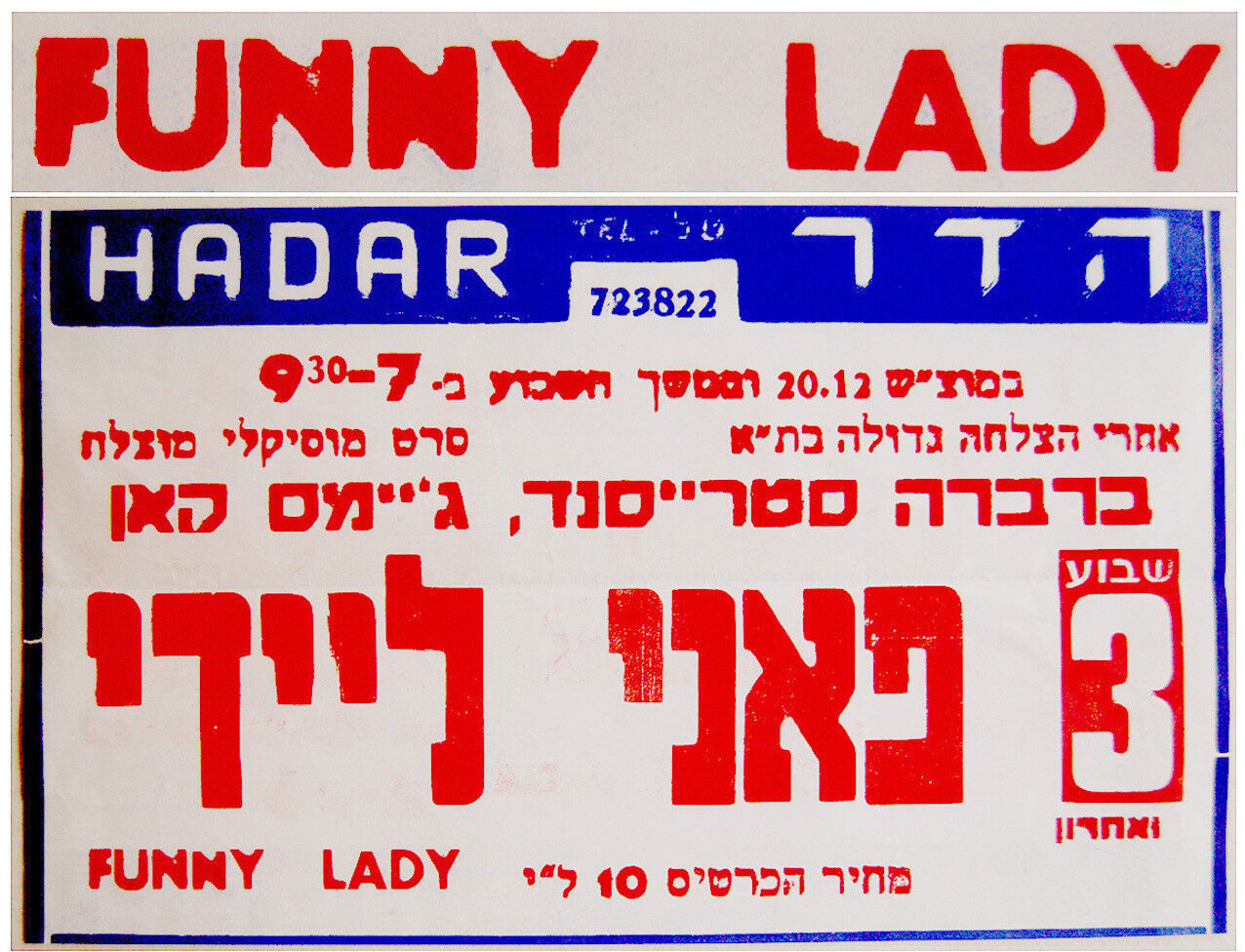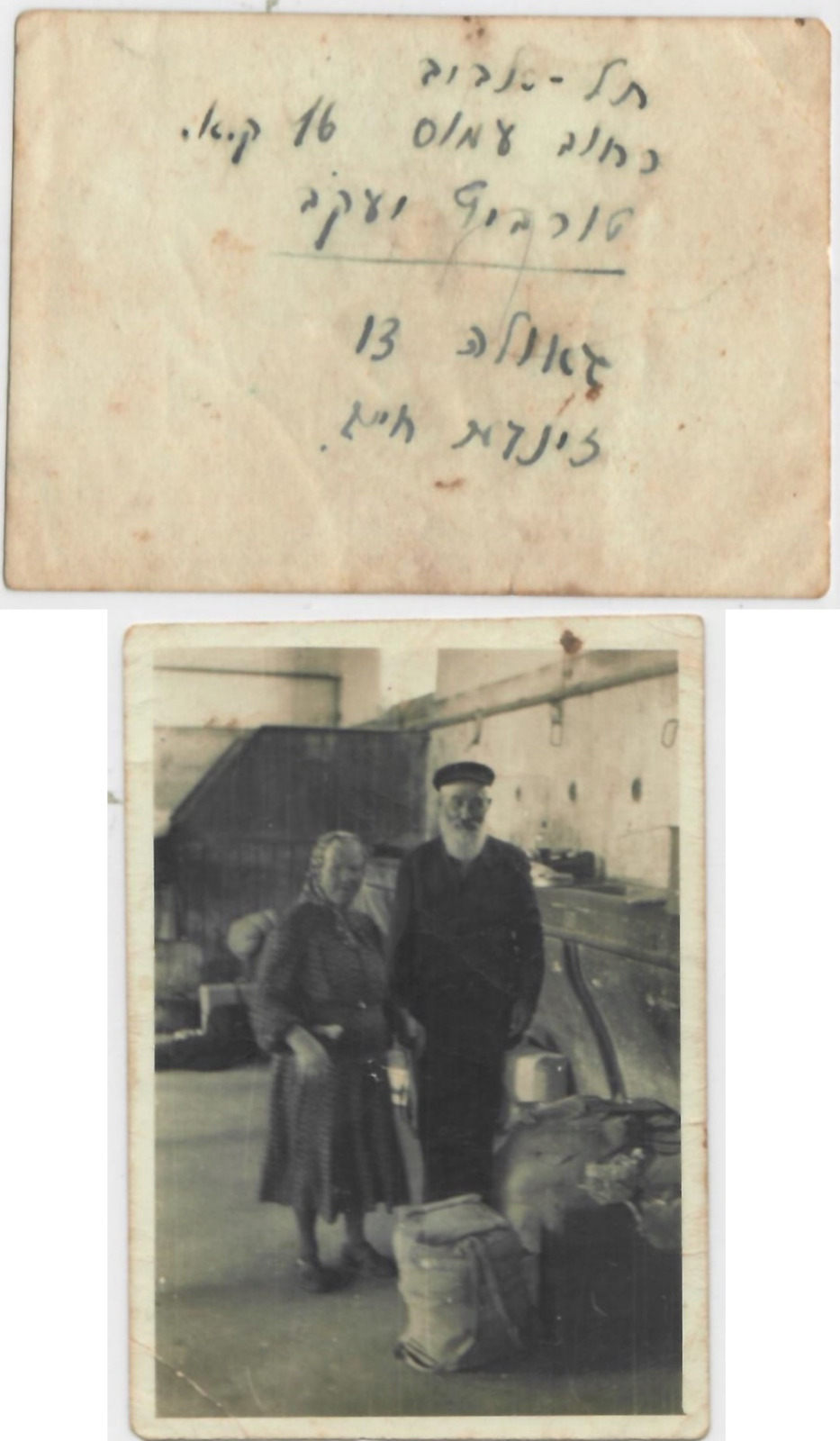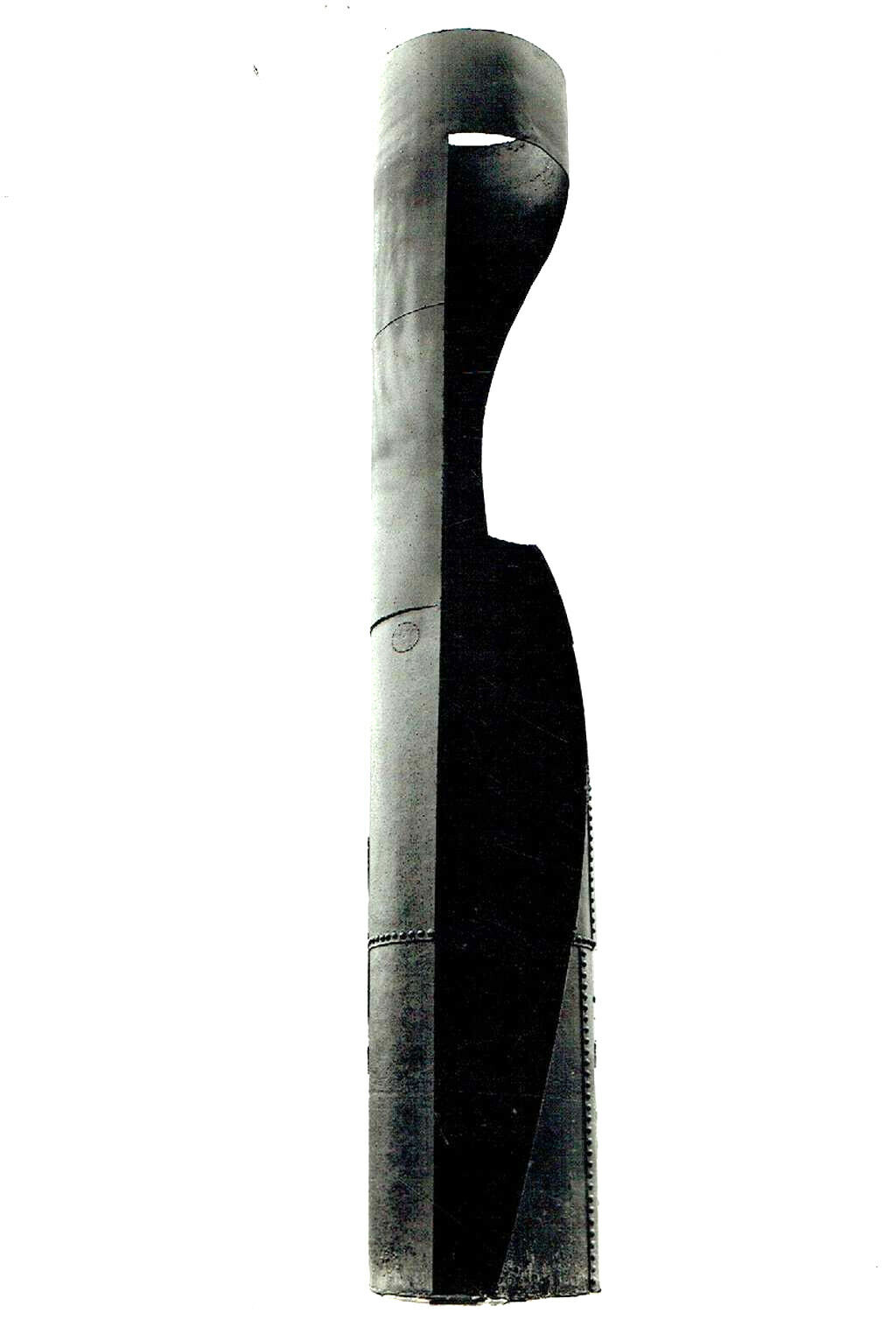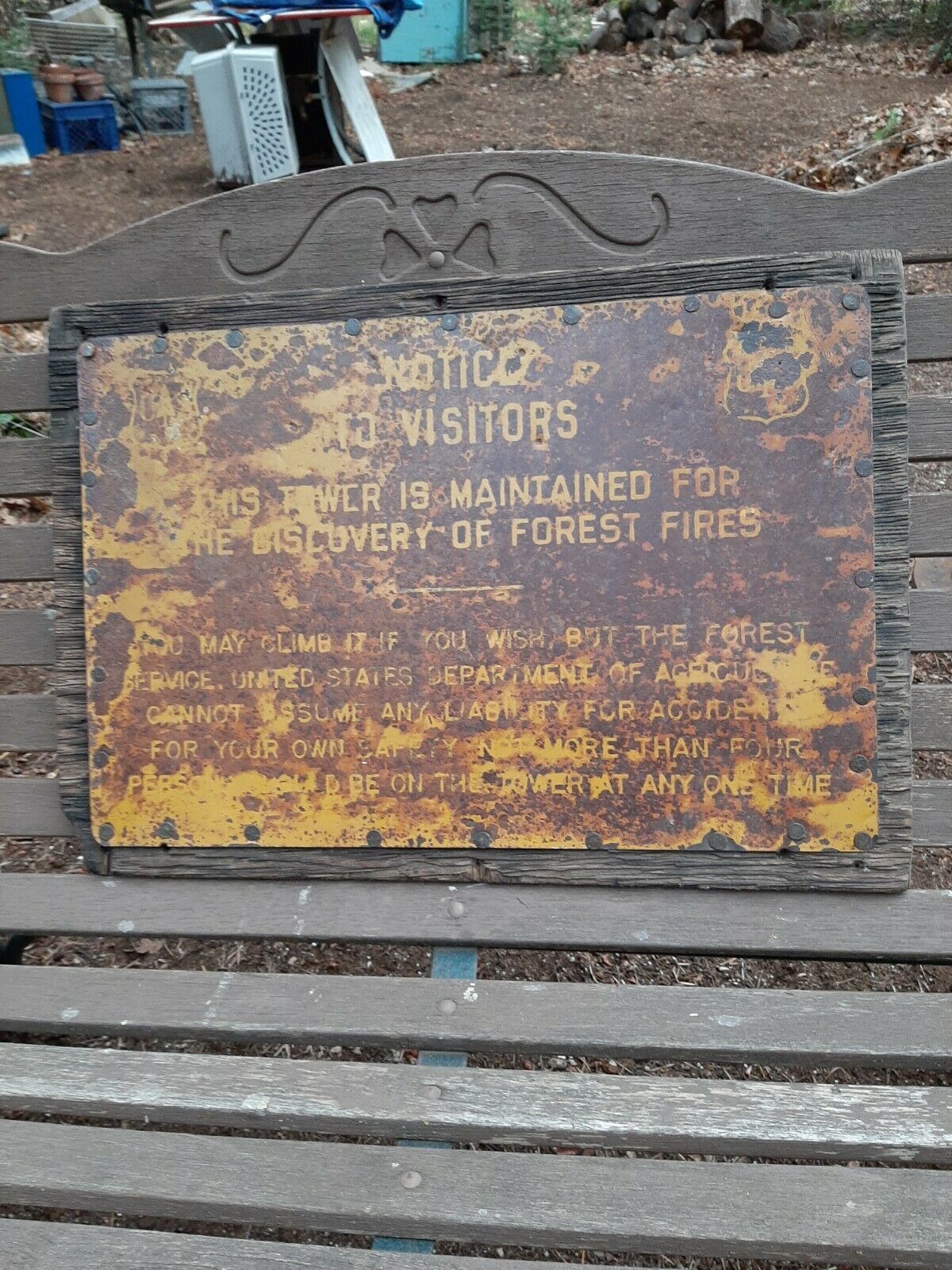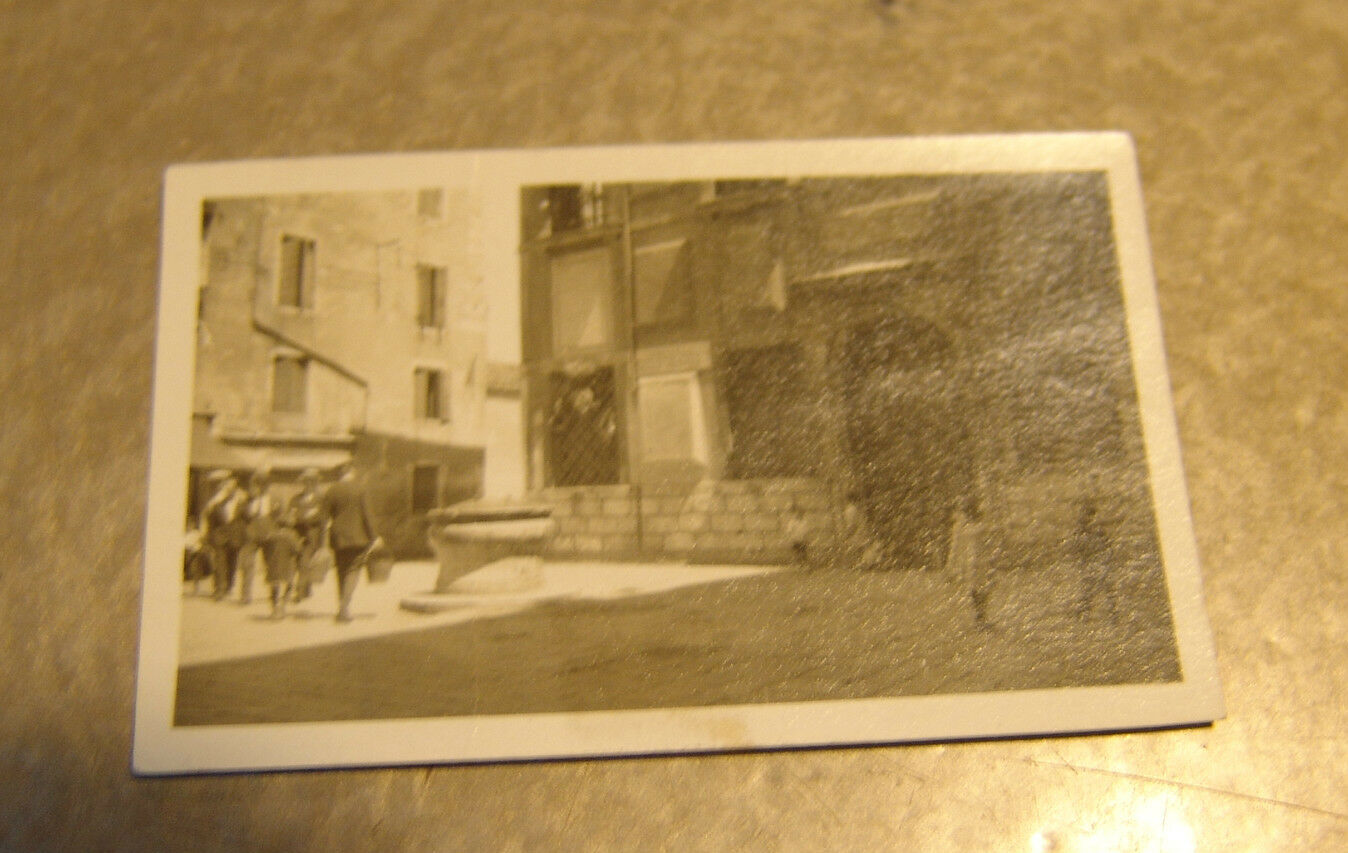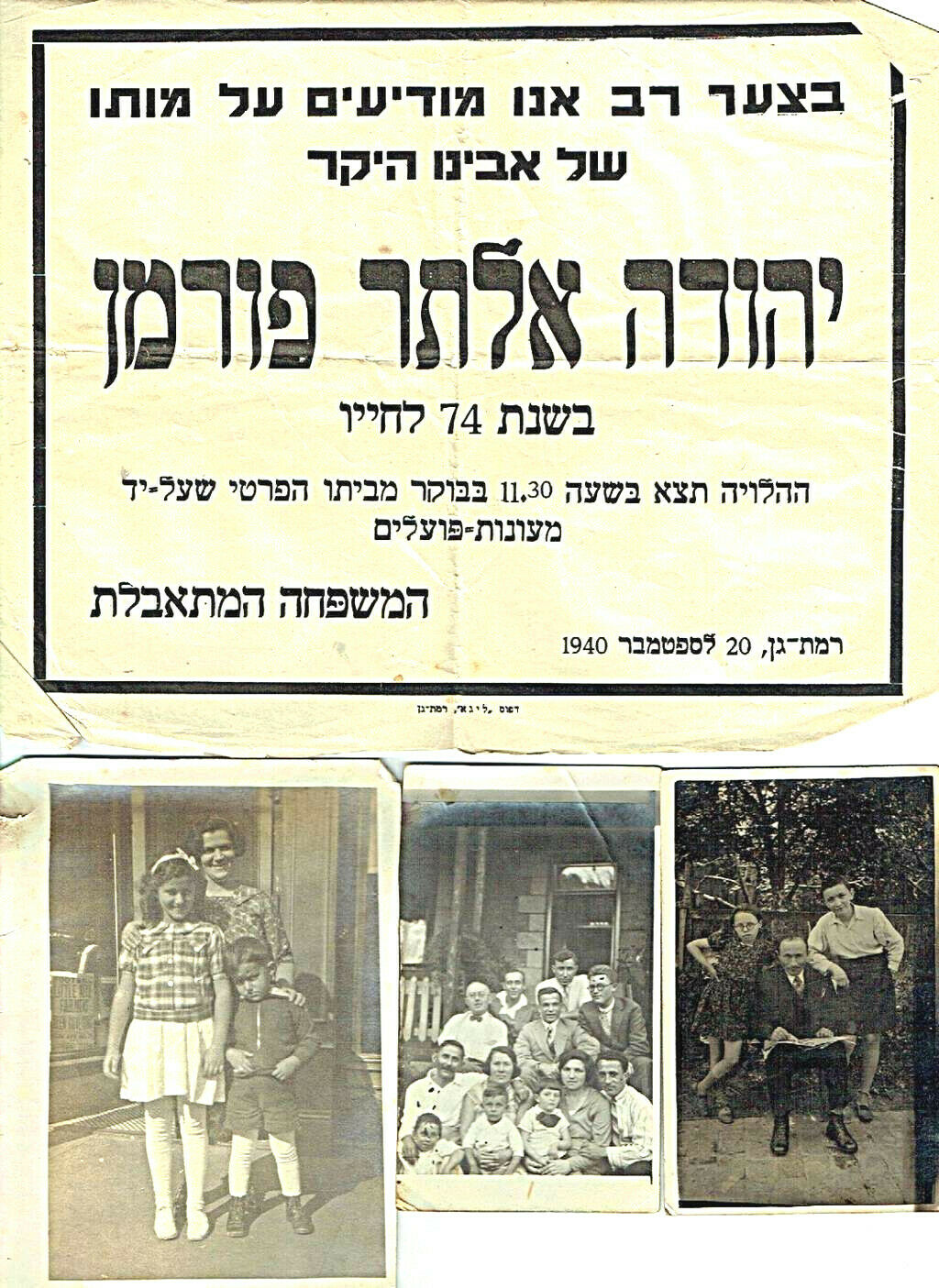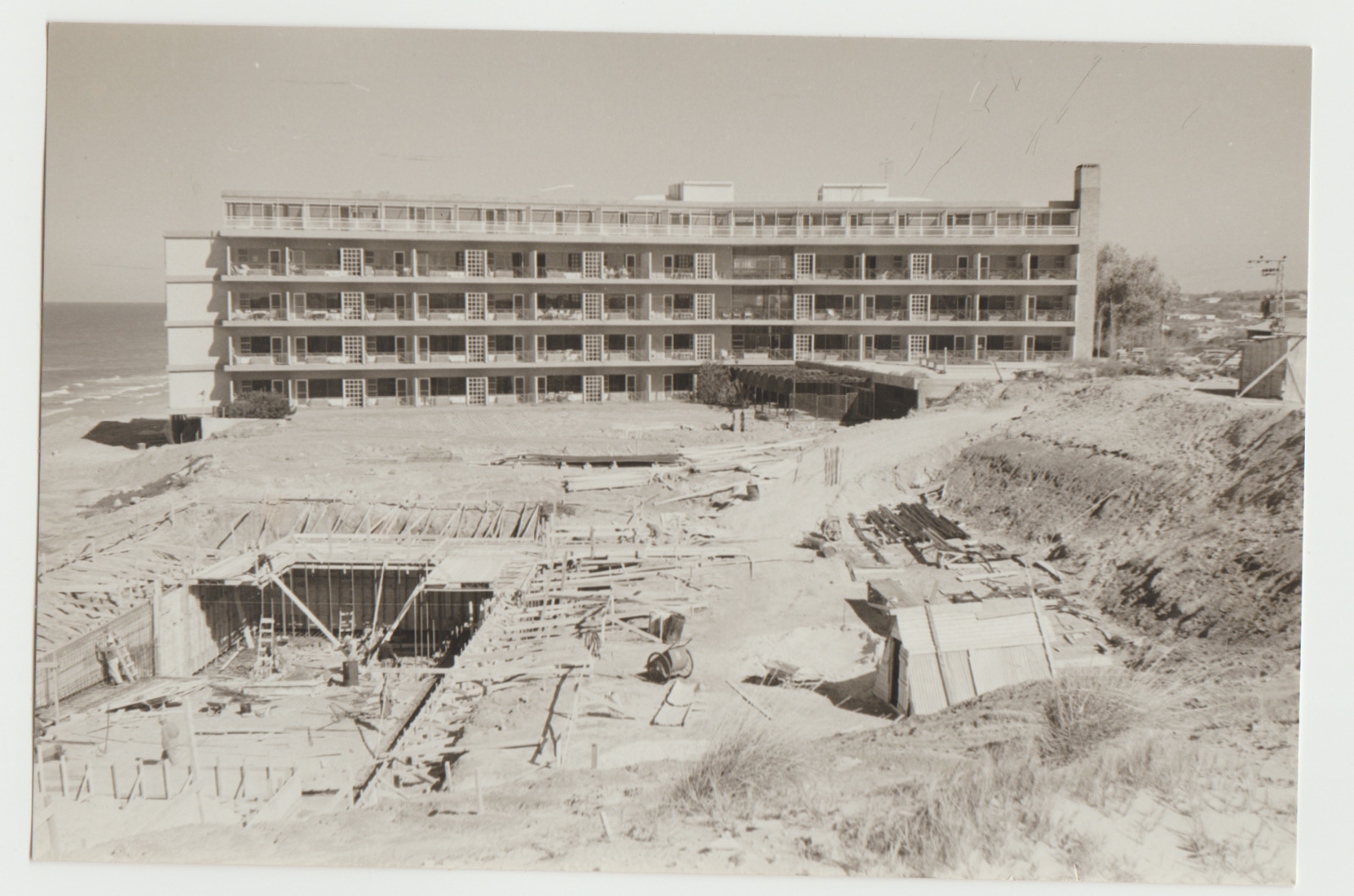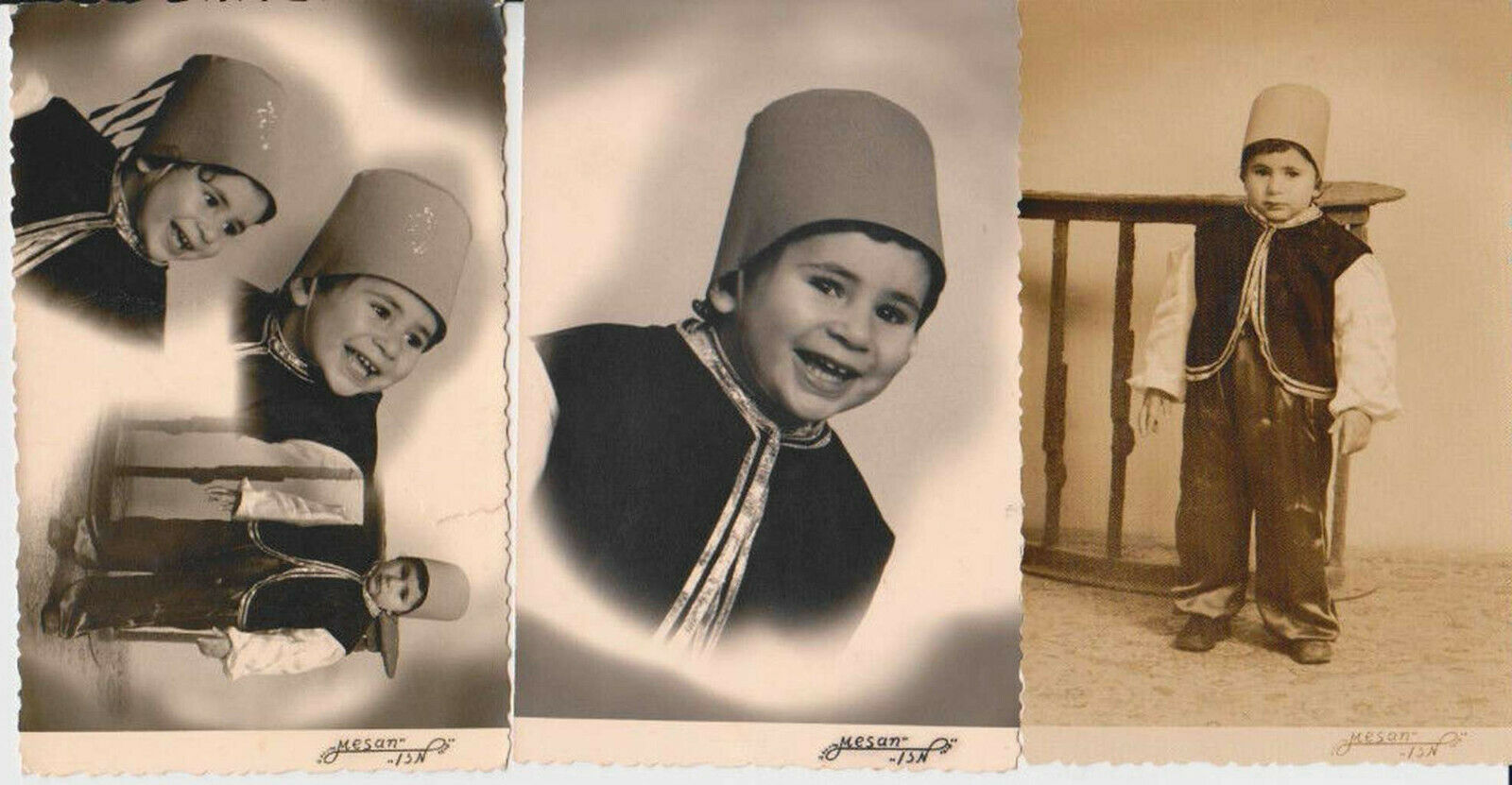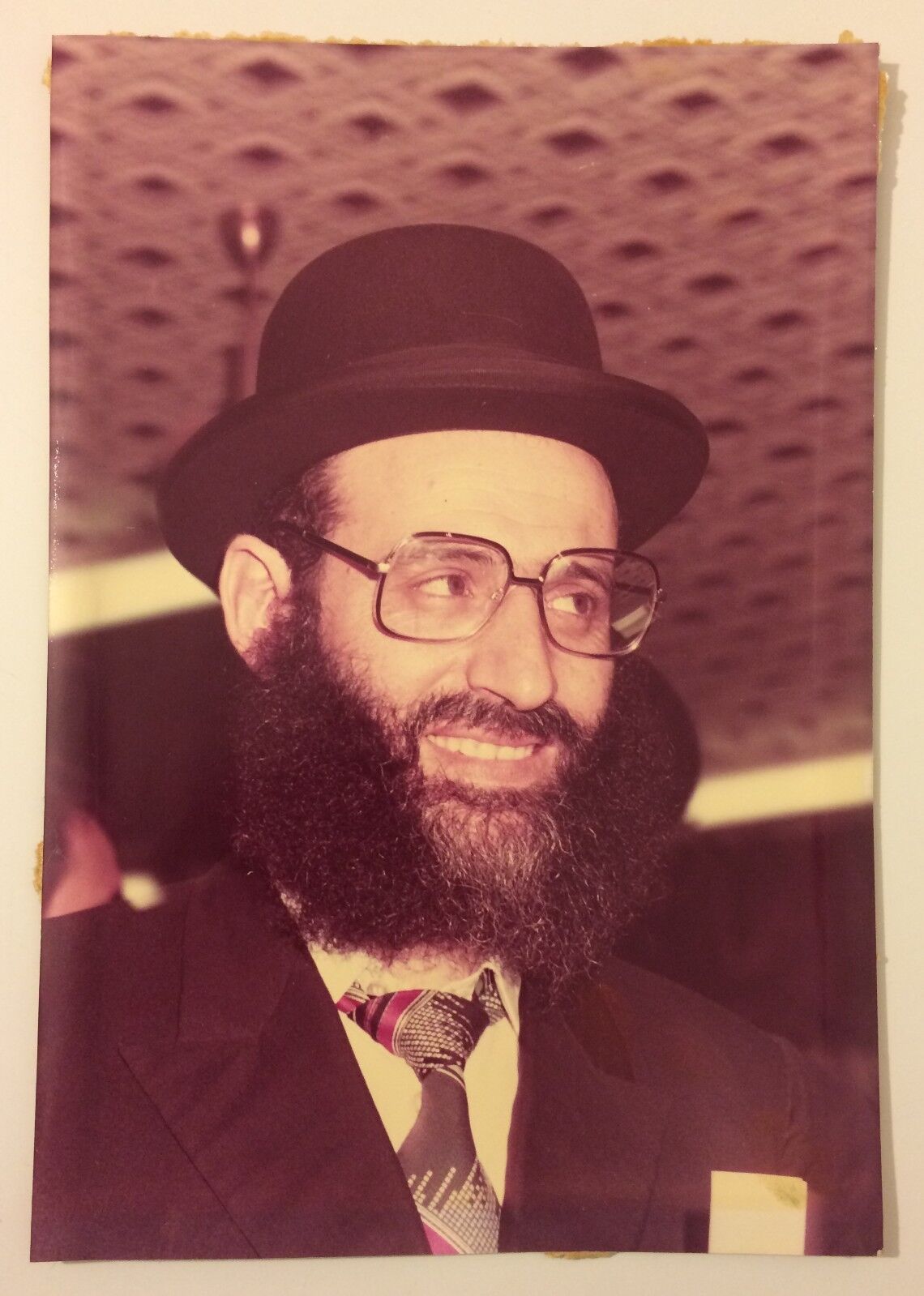-40%
1975 FUNNY LADY Orginal HEBREW Israel FILM POSTER Movie MUSICAL Streisand JEWISH
$ 39.6
- Description
- Size Guide
Description
DESCRIPTION:
Here for sale is an EXCEPTIONALY RARE and ORIGINAL ca 40 years old Hebrew-Israeli SMALL POSTER for the
PREMIERE release of the legendary
MUSICAL
film "
FUNNY LADY
" , Starring
BARBARA STREISAND , JAMES CAAN, OMAR SHARIF to name only a few
, in the small town of
RAMAT GAN
in ISRAEL
. The
Hebrew
poster was created ESPECIALLY for the Israeli release of the film . Please note : This is Made in Israel authentic THEATRE POSTER , Which was published by the Israeli distributors of "CINEMA
HADAR " in RAMAT GAN ISRAEL
for the Israeli
premiere
of the film
in ca 1975
. you can be certain that this surviving copy is ONE OF ITS KIND. Size 7" x 12" . The poster is in very good condition. Clean and fresh.
A few shallow creases and folding mark which will definitely disappearunder a framed glass.
( Pls look at scan for accurate AS IS images )
.
Poster will be sent in a special protective rigid sealed
package
.
PAYMENTS
:
Payment method accepted : Paypal
& All credit cards
.
SHIPPING
:
Shipp worldwide via registered airmail is . Poster will be sent in a special protective rigid sealed package.
Handling around 5 days after payment.
Funny Lady is a 1975 musical film starring Barbra Streisand, James Caan, Omar Sharif, Roddy McDowall, and Ben Vereen. A sequel to the 1968 film Funny Girl, it is a highly fictionalized account of the later life and career of comedienne Fanny Brice and her marriage to songwriter and impresario Billy Rose. The screenplay was by Jay Presson Allen and Arnold Schulman, based on a story by Schulman. The primary score was by John Kander and Fred Ebb. It was directed by Herbert Ross. Contents 1 Cast2 Production3 Box office4 Awards5 Soundtrack6 References 6.1 Bibliography7 External links Cast Barbra Streisand as Fanny BriceJames Caan as Billy RoseOmar Sharif as Nick ArnsteinRoddy McDowall as Bobby MooreBen Vereen as Bert RobbinsCarole Wells as Norma ButlerLarry Gates as Bernard Baruch Production Although she was contractually bound to make one more film for producer Ray Stark (Fanny Brice's one-time son-in-law), Streisand balked at doing the project. She told Stark "that it would take litigation to make her do a sequel." However, Streisand liked the script, which showed Fanny to be "...tougher, more acerbic, more mature...", and she agreed to do the film.[2][3] The first actor to read for the role of Billy Rose was Robert Blake. Other actors were mentioned, including Al Pacino and Robert De Niro, but ultimately James Caan was chosen. Streisand explained: "It comes down to whom the audience wants me to kiss. Robert Blake, no. James Caan, yes."[3] Stark, unhappy with the scenes shot by the original cinematographer, lured an ailing James Wong Howe out of retirement to complete the film. It proved to be his final project, and it earned him an Academy Award nomination.[4] Studio heads forced Ross to trim the film to a manageable 136 minutes prior to its release. Much of Vereen's performance ended up on the cutting room floor, together with a recreation of Brice's Baby Snooks radio show and dramatic scenes involving her and her daughter.[5] In addition to Howe, Oscar nominations went to Ray Aghayan and Bob Mackie for Best Costume Design, John Kander and Fred Ebb for Best Original Song ("How Lucky Can You Get?"), Peter Matz for Best Scoring of an Original Song Score and/or Adaptation, and the sound crew. Streisand, Caan, and Vereen all received Golden Globe Award nominations, as did Kander and Ebb and the film itself, but it was shut out of any wins in both competitions.[6] Box office The film grossed ,055,897 at the U.S. box office, making it the eighth highest grossing picture of 1975. James Caan thought there were "too many cooks messing around" the film, although he liked his performance.[7] Awards The film was nominated for five Academy Awards:[8] Academy Award for CinematographyAcademy Award for Costume DesignAcademy Award for Music (Scoring: Original Song Score and Adaptation)Academy Award for Music (Original Song)Academy Award for Best Sound (Richard Portman, Don MacDougall, Curly Thirlwell, Jack Solomon) It was also nominated for six Golden Globe awards including Best Picture Musical/Comedy, Best Actress for Barbra Streisand, and Best Actor for James Caan. Soundtrack The soundtrack peaked on the Billboard Album Chart at number 6 and was certified gold.[9] The original 1975 Arista soundtrack, with all songs by Kander and Ebb, unless otherwise noted:[10] Side 1 "How Lucky Can You Get?""So Long, Honey Lamb""I Found a Million Dollar Baby (in a Five and Ten Cent Store)" (Harry Warren, Billy Rose, Mort Dixon)"Isn't This Better?""Me and My Shadow" (Billy Rose, Al Jolson, Dave Dreyer)"If I Love Again" (Ben Oakland, J. P. Murray)"I Got a Code in my Doze" (Billy Rose, Arthur Fields, Fred Hall)"(It's Gonna Be A) Great Day" (Vincent Youmans, Edward Eliscu, Billy Rose) Side 2 "Blind Date""Am I Blue?" (Harry Akst, Grant Clarke)"It's Only a Paper Moon/I Like Him" and "It's Only a Paper Moon/I Like Her" ("It's Only a Paper Moon" by Harold Arlen, E.Y. "Yip" Harburg, Billy Rose; "I Like Him/I Like Her" by Kander and Ebb)"More Than You Know" (Vincent Youmans, Edward Eliscu, Billy Rose)"Clap Hands, Here Comes Charley" (Ballard Macdonald, Joseph Meyer, Billy Rose)"Let's Hear It For Me" The CD versions in print since 1998 are slightly different, relisted to match the order in the film, and with a couple of alternate versions and a bonus track:[11] "Blind Date""More Than You Know""It's Only A Paper Moon / I Like Him""It's Only A Paper Moon / I Like Her""I Found A Million Dollar Baby (In A Five And Ten Cent Store)""So Long, Honey Lamb""I Got A Code In My Doze""Clap Hands, Here Comes Charley""(It's Gonna Be A) Great Day" (alternate version, slightly longer and with a different vocal)[12]"How Lucky Can You Get""Am I Blue""Isn't This Better""If I Love Again""Let's Hear It For Me" (with introduction not included on the original album)"Me And My Shadow" "How Lucky Can You Get (Single Mix)" "Funny Girl" was Streisand's screen debut, and she was tart and sassy and extravagantly talented. But she's nurtured her talent all too carefully in the years since, in a series of overproduced and overprotected musical vehicles that don't take chances and don't take off. Never before, however, has Streisand looked as hapless as this. The screenplay is botched -- a series of disconnected highs and lows with no sense of life in between -- and the scenes that are supposed to be poignant have us snickering under our breath. Fanny's marriage to Rose (James Caan), for example, is such a puzzling series of random meetings and separations, we need a calendar to keep them straight. And she's still in love with the vapid Nicky Arnstein during most of the movie -- so Billy Rose needs a calendar, too, or maybe a shrink. After Fanny's big opening on Broadway in a Billy Rose show, she spots Nicky (Omar Sharif) over the footlights. This would be, of course, impossible; but never mind. She spots him, Billy Rose spots him, Roddy McDowall as her faithful gay sidekick spots him and everybody holds their breath. Nicky comes backstage for a peculiar scene during which he says "Fanny," as if it were his only word of English. She weeps with joy, it turns out he's married someone else (why didn't she already know?), he leaves, she mourns. Then she sings a brave number, alone onstage after the others have left. Billy Rose listens from the wings. He loves her, and here is his chance, but he lets her leave alone. Five months later, with no scenes in between, he asks her to marry him. Later, there is a scene in a Pullman bedroom where they argue over her cold cream and his pajamas. Fade to Fanny singing a love song to her man, now sans pajamas, and then there is another tremendous leap forward in time. There is no sense of continuity here, and indeed a cinematic archeologist would guess that whole passages, whole handfuls of scenes, were jettisoned. Caan makes a passable Billy Rose, although we never get much sense of a connection with the historical Rose and his prodigious talent as a producer and packager. But Sharif, as Arnstein, is an embarrassment. He wasn't this bad in "Funny Girl" because that was all Barbra's show. He had to mope around, spaniel-eyed and worshipful, until her talent outgrew his weakness and they split up. This time, inexplicably, she can't get that man outta her mind. No wonder. He's presented as some sort of Playgirl or Viva fantasy, forever casting his quick, enigmatic glances from atop his polo pony. In the most laughable scene of a movie filled with them, they have a reunion and he explains that even if he leaves his rich wife, "I'll walk away with a large stake." Streisand breathes dreamily and embraces a handy nearby pillar. A lot of this junk could have been saved by some great Streisand numbers. But here's where Herbert Ross, the director, fails most spectacularly. He wastes resources on a series of musical extravaganzas that are supposed to be bad -- the Billy Rose flop in Atlantic City that becomes a hit on Broadway -- and although he goes to the extreme of providing a runaway buffalo on stage, he doesn't get many laughs because his bad numbers are so overproduced and badly timed they are not funny, they're ungainly. With less than the cost of the costumes, Mel Brooks could (and in "The Producers" (1968) did) provide a bad musical number infinitely funnier. In the midst of the carnage, Streisand sometimes hardly registers. She does a lot of her songs voice-over, which displaces her great presence and delivery, and there's a would-be big number involving a car and an airplane that draws only negative comparison with her "Don't Rain on My Parade" spectacular in "Funny Girl." Ross consistently misses high points, ends scenes without completing them, gives us a muddy sound track, wastes time on ridiculous dialog (the conversation about Arnstein's toothbrushes has to be heard to be disbelieved), and then commits the most inexplicable omission of all. After a 10-year absence, Billy Rose reappears to coax Fanny Brice back onto Broadway. We look forward to the obligatory comeback scene with the old trouper bringing the house down -- and instead we get the end credits. "Funny Girl" (1968) was directed by the veteran Hollywood craftsman William Wyler, who was strong enough to make the movie he wanted, and one that worked. Since then, Streisand has frequently preferred directors who would go along with her, who'll let her call the shots. She has a prodigious talent -- that big voice and the comic timing, too -- but it's embalmed here. The audience files out sheepishly, having dared to hope they'd be entertained. Performers, no matter how gifted, can't fail on such a spectacular scale very often before they stop getting the opportunity. Seven years after the success of Funny Girl (1968), the story of Ziegfeld Follies star Fanny Brice, its sequel, Funny Lady, was released in 1975. Picking up on the Brice story where Funny Girl left off, Barbra Streisand reprised the role that made her famous and Ray Stark (the real life son-in-law of Brice) once again played executive producer, but the circumstances were much different on this production. Omar Sharif, returning in his role as Nicky Arnstein, became a secondary character in relation to James Caan's Billy Rose, and the constant battle of wills between Streisand and Stark threatened the production on an almost daily basis. That the film was even made was a small miracle; in her biography, Her Name is Barbra by Randall Riese, Streisand recalled, "When Ray Stark told me he wanted to make the sequel to Funny Girl, I told him, 'You'll have to drag me into court to do that picture.'" Court wouldn't have been completely out of the question: Stark, credited with discovering Streisand, had a contract with the actress for four pictures, and she had one more to go, after completing Funny Girl, The Owl and the Pussycat (1970), and The Way We Were (1973). There was perhaps, however, an even more powerful incentive for the actress to do the picture than a lawsuit: Liza. In the last several years, Ms. Minnelli had become a major rival for screen and stage musicals as well as television specials. With a Tony win at nineteen, the Oscar® for Cabaret (1972) and an Emmy win for her live television concert, "Liza With a Z", she was in striking distance. From the Riese biography: "But Barbara was not quite ready to step down. She decided to make Funny Lady, turning it into her Cabaret. John Kander and Fred Ebb, who had composed both Cabaret and 'Liza with a Z,' were hired to compose the music. Jay Presson Allen, who wrote the screenplay for Cabaret would do the same for Funny Lady." Because Herb Ross was already signed on as director, having graduated from choreographer in Girl, Streisand couldn't get Cabaret helmer Bob Fosse. But she got the style, signing on Fosse protege Ben Vereen in a featured role. Brice's love interest in the film, Billy Rose, caused some casting concerns. The real-life Billy Rose was diminutive, at four-foot-eleven-inches. The first actor to read for the part? Robert Blake, the star of the television series Baretta from 1975 to 1978. Almost thirty years later, he is in the spotlight again: he is set to go on trial for the murder of his wife this fall. Passing on Blake, several names floated around, including Dustin Hoffman, Al Pacino, Robert DeNiro, and Richard Dreyfuss. The role, however, went to James Caan, even though he was the physical opposite of Rose; Streisand explained the casting best: "It comes down to whom the audience wants me to kiss. Robert Blake, no. James Caan, yes." Caan proved himself a bit of a troublemaker on set at times; a fervent rodeo fan with the nickname "The Jewish Cowboy," the actor snuck off during production to be in a roping competition in nearby Palm Springs. He returned with a broken thumb that had to be placed in a cast; director Ross engineered inventive ways to film around it. Ever the instigator, Stark was heard to remark about another Caan disappearance, "Have you checked the alligator farms around here? He's probably wrestling one." Omar Sharif, after a string of disappointments following Funny Girl, signed on for a drastically reduced role in Funny Lady. His character, Nicky Arnstein, has but a few scenes in the film and is ultimately rejected by Brice; in real life, the tables had turned as well. A highly-publicized affair between Streisand and Sharif occurred during the shooting of Funny Girl, which ended at Sharif's behest, but the rejecter apparently became the rejected during the filming of Funny Lady. Streisand was in a relationship with hairstylist Jon Peters; the romance, in fact, had shaped her priorities and was rumored to be one of the reasons she wanted to get her commitment to Stark fulfilled and out of the way: "I'm not going to work for a while after this. I've discovered a whole life to live away from show business and this time I like it." Sharif was brief about the issue in his autobiography, saying only, "We had been through a great love affair - both on and off the movie set. There we were, old friends getting together again - both on and off the set." Even though Barbra's love life was flying high, she had no real love - for flying. The script called for Streisand to hop into a biplane to see Caan, and she was not thrilled at the prospect. Assistant Director Jack Roe recalls in James Spada's Streisand : Her Life: "[Director] Herb was wonderful, he could really finesse actors. She had a right to be scared; it was, after all, only a two-seater plane. But he talked her into it. I had set it up with the airport for the plane to take off and turn around and then land; she wasn't supposed to be up in the air very long. But it got messed up and the control tower couldn't let it land. It was bizarre. She was up there for almost half an hour, scared to death, and you could hear her screaming bloody murder from the minute the plane touched down until it taxied to a stop. She said she thought she was being kidnapped. It was terrible. But amazingly, Herb was able to talk her into doing it again!" Yet despite the power struggles, the broken thumbs, shunned lovers, and malfunctioning planes, the production wrapped successfully in the summer of 1974. It was released the next year to mostly positive reviews, earned almost 50 million dollars, and was nominated for five Oscars® including Best Cinematography (James Wong Howe), Best Score, Best Song, Best Costume Design and Best Sound. Streisand made her peace with Stark; it was rumored that she presented him with a post-production gift of an antique mirror, on which she had scrawled in red lipstick: "Paid in full." As befits their love-hate relationship, however, a plaque also accompanied the mirror, reading, "Even though I sometimes forget to say it, thank you, Ray. Love, Barbra." Producer: Ray Stark Director: Herbert Ross Screenplay: Jay Presson Allen, Arnold Schulman (also story) Cinematography: James Wong Howe Film Editing: Marion Rothman, Maury Winetrobe Art Direction: George Jenkins Music: John Kander, Peter Matz Cast: Barbra Streisand (Fanny Brice), James Caan (Billy Rose), Omar Sharif (Nicky Arnstein), Roddy McDowall (Bobby Moore), Ben Vereen (Bert Robbins), Carole Wells (Norma Butler). C-138m. Letterboxed. by Eleanor Quin ebay3119
